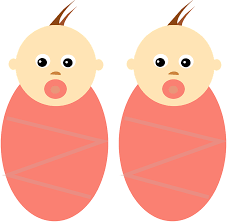Claim of CRISPR’d baby girls stuns genome editing summit
By Sharon Begley,
STAT
| 11. 26. 2018
HONG KONG — A Chinese scientist’s claim that he used the genome editing technology CRISPR-Cas9 to alter the DNA of human embryos, resulting in the birth a few weeks ago of twin girls, stunned organizers of the Second International Summit on Human Genome Editing, leaving them scrambling to evaluate the claim two days before the scientist is scheduled to speak at the meeting.
“I don’t know the details” of the claim by He Jiankui, said David Baltimore of the California Institute of Technology, chairman of the organizing committee of the summit, which begins on Tuesday in Hong Kong. “We don’t know what will be said” when He speaks at a session on human embryo editing.
The summit’s organizing committee issued a statement Monday saying they had only just learned of He’s research in Shenzhen, China. “Whether the clinical protocols that resulted in the births in China conformed with the guidance” of leading scientific bodies for conducting clinical trials of heritable genome editing “remains to be determined,” the statement said. “We hope that the dialogue at our summit further advances the...
Related Articles
By Scott Solomon, The MIT Press Reader | 02.12.2026
Chris Mason is a man in a hurry.
“Sometimes walking from the subway to the lab takes too long, so I’ll start running,” he told me over breakfast at a bistro near his home in Brooklyn on a crisp...
By Zachary Brennan, Endpoints News | 02.23.2026
The FDA is spelling out the details of a new pathway to help speed personalized cell and gene therapies to market for rare diseases.
Monday’s long-awaited draft guidance outlines the agency’s “plausible mechanism” framework, a pathway FDA Commissioner Marty Makary...
By Amy Feldman, Forbes | 02.17.2026
"Jennifer Doudna" by Duncan Hull for the Royal Society via Wikimedia Commons licensed under CC by SA 3.0
Soon after KJ Muldoon was born in August 2024, he was lethargic and wouldn’t eat. His worried doctors realized his ammonia...
By David Jensen, California Stem Cell Report | 02.10.2026
Touchy issues involving accusations that California’s $12 billion gene and stem cell research agency is pushing aside “good science” in favor of new priorities and preferences will be aired again in late March at a public meeting in Sacramento.
The...




